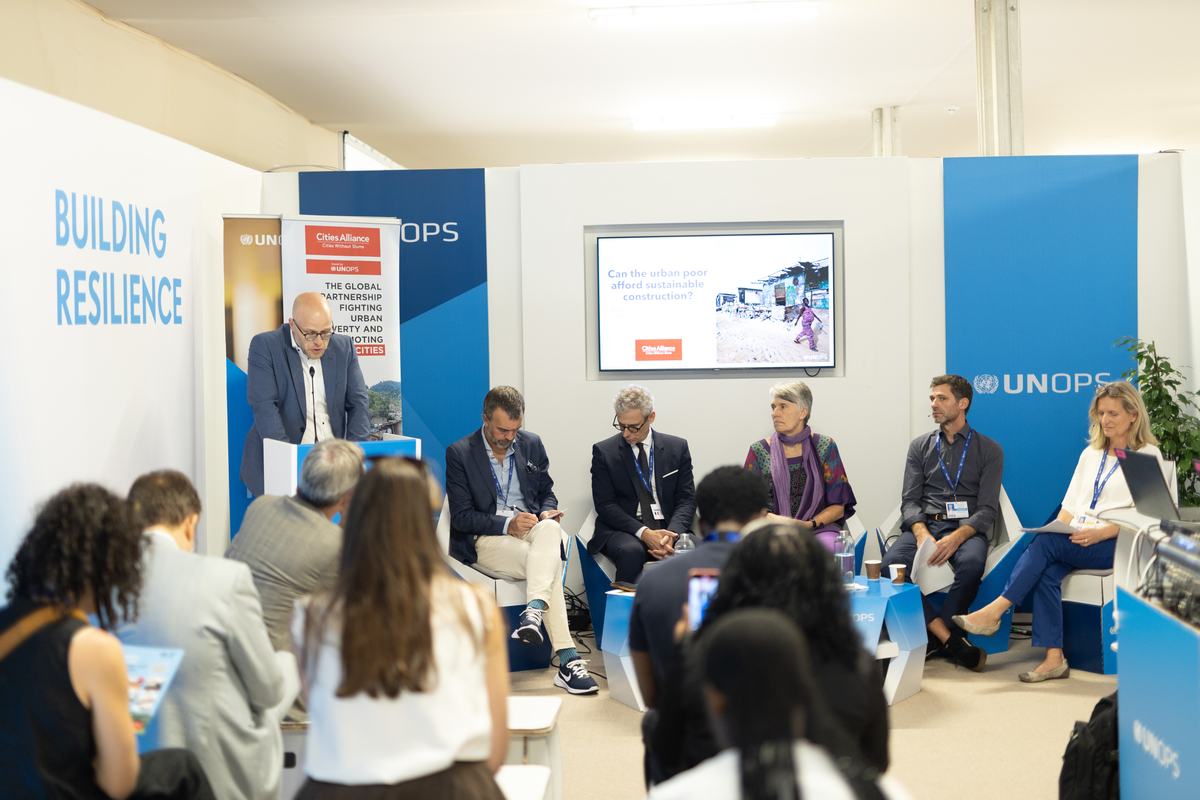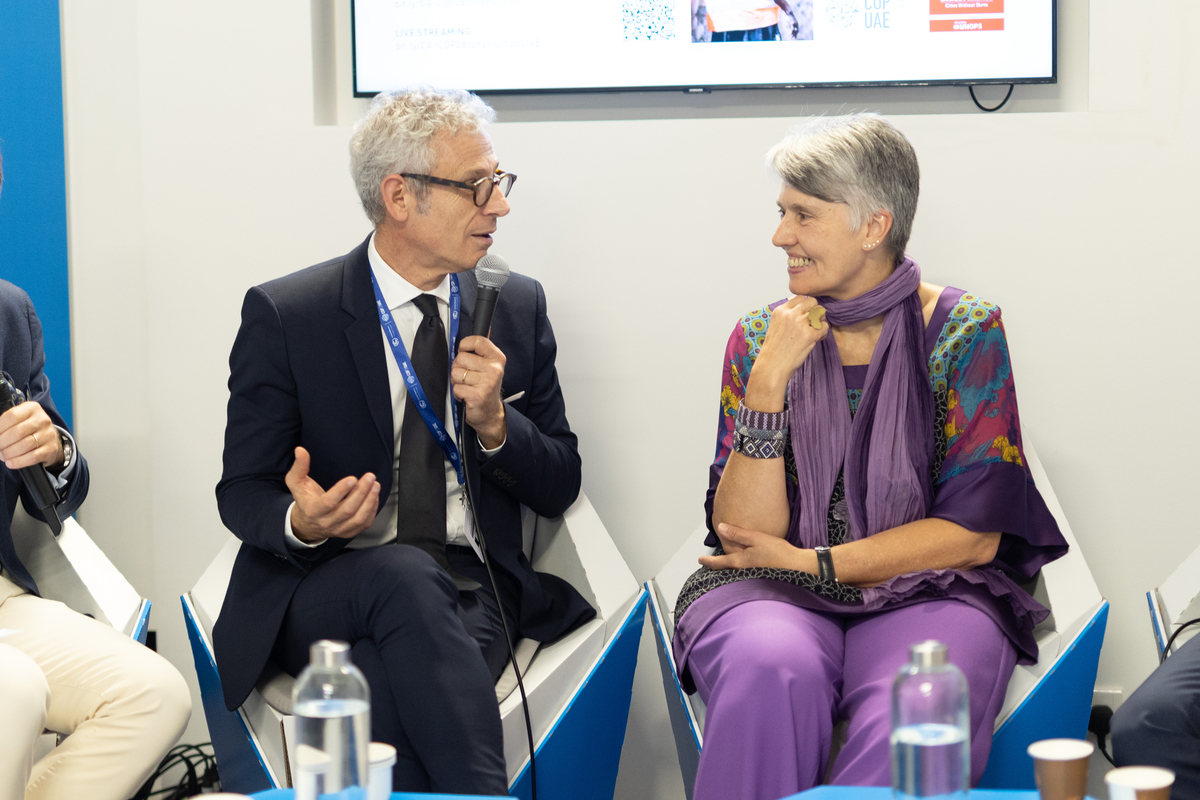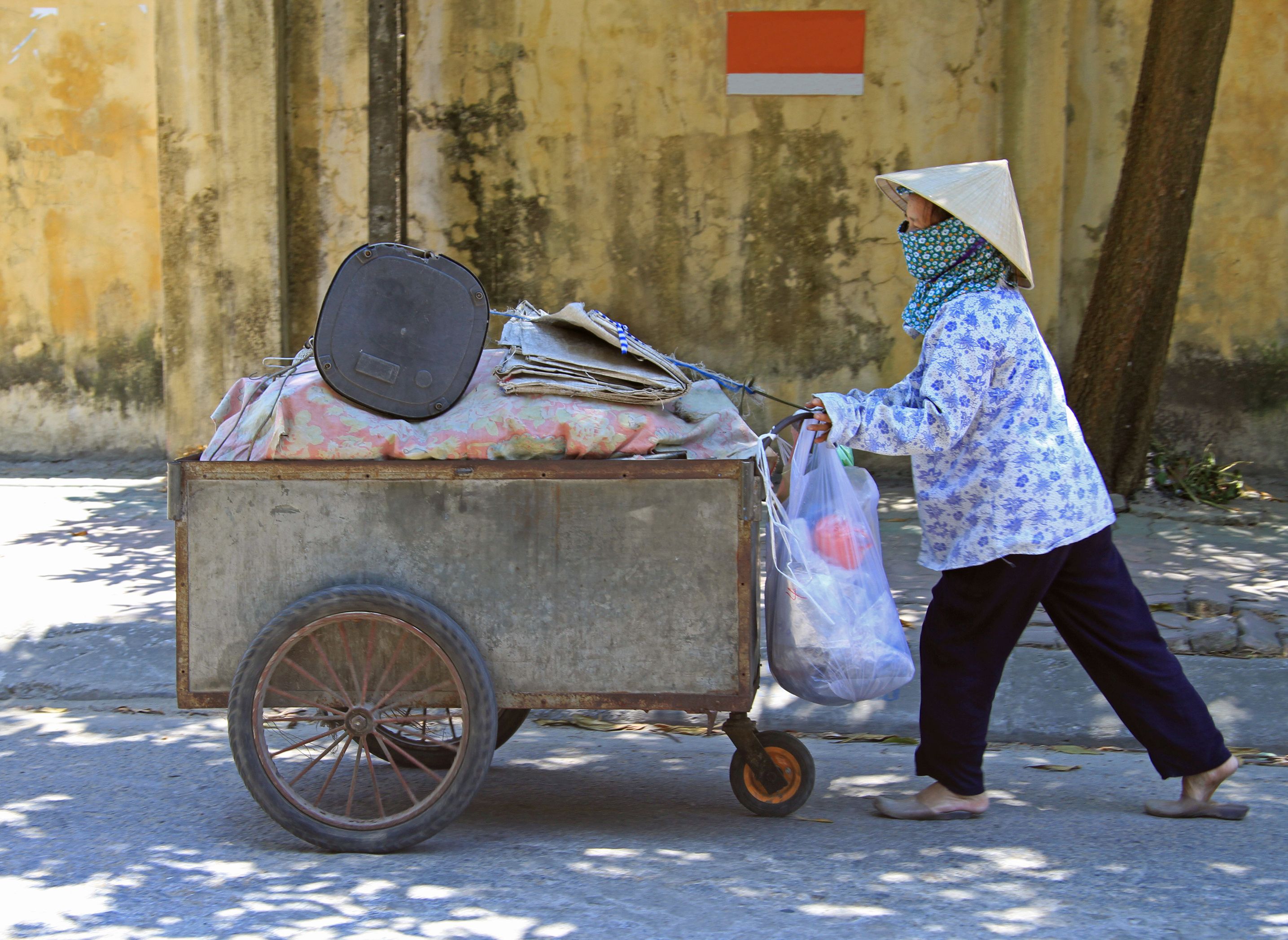At COP28, Cities Alliance deep-dived into the role of sustainable construction in promoting a just transition for the most vulnerable citizens.
COP28, the 28th climate conference held in Dubai, marked a significant breakthrough with the Dubai Agreement, declaring a transition away from fossil fuels. Notably, the agreement emphasises increasing resilience in infrastructure and human settlements to climate change impacts.
While the outcomes received mixed feedback, the conference saw over 70 nations signing the 'COP28 Coalition for High Ambition Multilevel Partnership (CHAMP) for Climate Action', indicating strong support for multilevel cooperation. Additionally, nearly USD 500 million in climate finance for urban infrastructure was announced, hinting at a new phase of collaboration under the UNFCCC umbrella.
But what does that mean for the urban poor?
Sustainable construction: fostering urban resilience and community engagement
The Human Settlement Day at COP28 witnessed the launch of the Building Breakthrough initiative by France and Morocco, aiming to decarbonize the building sector by 2030. The initiative focuses on making clean technologies and sustainable solutions accessible and affordable globally. Considering that half of all buildings, especially in Africa, will be built incrementally by the urban poor, Cities Alliance conducted a deeper exploration into sustainable construction on December 6th.
During the event Sustainable Construction: Fostering Urban Resilience and Community Engagement, facilitated by Cédric de Meeûs, Vice President Group Public Affairs and Social Impact, Holcim, key themes such as affordability, sustainability, attractivity, scalability, and inclusivity were discussed.

Arne Janssen from Cities Alliance emphasised the need for a just transition in construction, particularly addressing urban growth in the informal sector. Cities Alliance's position paper, Can the Urban Poor Afford Sustainable Construction? formed the basis for these discussions.
He emphasised the importance of secure land tenure, policy regulations, community leadership, and incremental housing with local materials to address urgent challenges of urbanisation.
Upscaling pro-poor solutions
Carmen Vogt from GIZ highlighted existing resources for climate change adaptation, citing the Cities Adapt project supporting pro-poor solutions in Mexico and South Africa. She pointed to the Eco Kiln technology in Malawi as an example of low-CO2, high-quality brick production, emphasizing the importance of nature-based, pro-poor solutions
Thinking outside the box
Jonathan Duwyn, from UNEP / Global ABC Secretariat, spoke about the circular economy in the informal sector, advocating for low-carbon and sustainable materials.
The informal sector is already very circular, often not buying new materials for construction.
He recommended minimising material use, promoting reuse, and transitioning to circular and eco-friendly options like hybrid or bio-based materials. This shift in the material supply chain is crucial for a just transition in sustainable construction, considering the importance of improving working conditions, especially for women in the construction sector.
Debra Roberts, a scientist and co-chair of the IPCC, as well as the Head of the Sustainable and Resilient City Initiatives Unit in eThekwini Municipality of Durban, South Africa, stressed the need for innovative approaches. She highlighted the importance of considering informal settlements in the context of sustainable construction and urged a toolkit that extends beyond immediate challenges.
We need to think out of the box and ensure that nature remains functional. If ecosystems fail, it will put a lot of pressure on infrastructure.
'We have to think low-tech, local and passive solutions', said Yves-Laurent Sapoval, Advisor to the French Minister of Ecology, Energy, and the Territories. He stressed the importance of raising the opportunities of sustainable construction at the highest level and welcome the upcoming Buildings and Climate Global Forum, the first gathering od this kind at ministrial level, which will take place in March 2024 in Paris.

The event concluded by underlining the critical importance of addressing urban informality and inequality in the face of climate change. The speakers emphasised placing the urban poor at the centre of the just transition and adopting a circular economy-oriented approach to sustainable construction. The event highlighted the urgency of addressing capacities and finance to (re)build affordable housing, particularly in informal settlements.
We have to think about informal settlements and how to (re)build affordable housing – it’s about capacities and finance.
Carmen Vogt, GIZ
Watch the recording






